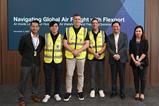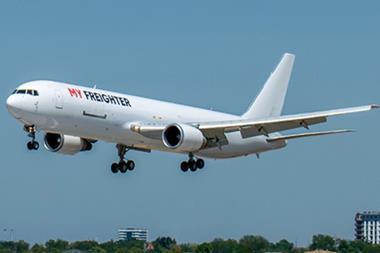Korean Air has been recertified by IATA’s Center of Excellence for Independent Validators Pharma (CEIV Pharma) for air transport of pharmaceuticals.
Korean Air provides customised cold chain services for a wide array of products that call for dynamic requirements and conditions. The airline transports pharmaceuticals such as vaccines, lab reagents and serums, and fresh products including flowers, fruits, seafood, through its “Specialised-Pharma” and “Specialised-Fresh” services.
Through a joint investment with Incheon International Airport Corporation, the airline operates a “Cool Cargo Center” at the airport’s Terminal 2.
Constructed in September 2021, the facility minimises exposure to adverse environments and reduces unnecessary movement and traffic.
The customised special cargo services facilitated the transport of emergency quarantine supplies over the course of the pandemic. Korean Air, in close cooperation with the Korean Ministry of Land, Infrastructure and Transport (MOLIT), and the Korea Centers for Diseases Control and Prevention - formed a vaccine task force for safe and efficient transportation of COVID vaccines.
More than 100m doses of vaccines have been shipped to date, and the airline continues to transport emergency medical supplies including COVID treatments and diagnostic kits, around the world.
IATA's CEIV Pharma is an international standard that recognises an airline’s capability to manage pharmaceuticals. More than 280 checklists, including transportation handling procedure, storage facilities, equipment, and the ability to adhere to regulations, are evaluated by air cargo transportation experts for certification.
Valid for three years, IATA certification requires a demanding evaluation of the airline’s capabilities. After the initial certification in 2019, Korean Air formed a task force in February this year in preparation for recertification.
Korean Air is currently considering a move for the new widebody freighters launched by Airbus and Boeing in recent months.
https://www.aircargonews.net/business/korean-air-merger-doesnt-affect-cargo-competition/














